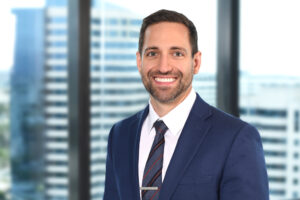HVLPO2, LLC v. OXYGEN FROG, LLC
Before Newman, Moore, and Chen. Appeal from the United States District Court for the Northern District of Florida.
Summary: It is an abuse of discretion to permit a witness to testify as an expert on issues of noninfringement or invalidity unless that witness is qualified as an expert in the relevant art.
HVLPO2, LLC (“HVO”) sued Oxygen Frog and its CEO for infringement of patents on oxygen generation circuits. At trial, Oxygen Frog introduced testimony of a lay witness on obviousness who was not qualified as an expert. Specifically, the witness was asked, “Did you think that modifying the [prior art] system to support two circuits to be obvious?” The witness answered, “Yes.” HVO objected to the question as seeking improper expert opinion testimony. The district court overruled the objection and instead gave the jury a limiting instruction that the witness “certainly can offer his observations and explain to you how a system works and what he thinks would occur to him from his perspective would or would not be obvious.” The district court also instructed the jury that it was ultimately up to them to decide the issue of obviousness. The jury found that the tried claims were obvious. After the trial, HVO filed a motion for judgment as a matter of law, or in the alternative, for a new trial. The district court denied both motions. HVO appealed.
The Federal Circuit applied Federal Rule of Evidence 702 governing expert witness testimony and stated that allowing a witness to testify on issues of noninfringement or invalidity is an abuse of discretion unless such witness is qualified as an expert in the relevant art. Because Oxygen Frog’s testimony regarding obviousness came from a witness not qualified as an expert, the Federal Circuit held that the district court abused its discretion in admitting such testimony.
The Federal Circuit rejected Oxygen Frog’s argument that admitting the testimony was harmless. The court explained that such admission deprived HVO of its right to have the obviousness question decided on admissible, qualified expert testimony and prejudiced HVO by circumventing the expert discovery rules that ensure the reliability and relevance of such testimony. While recognizing that it may be possible for a district court to cure inadmissible testimony by instructing the jury to disregard it, the Federal Circuit held that the district court improperly permitted the jury to consider lay witness testimony as evidence of obviousness in this case. Thus, the Federal Circuit reversed and remanded for a new trial.
Editor: Paul Stewart
